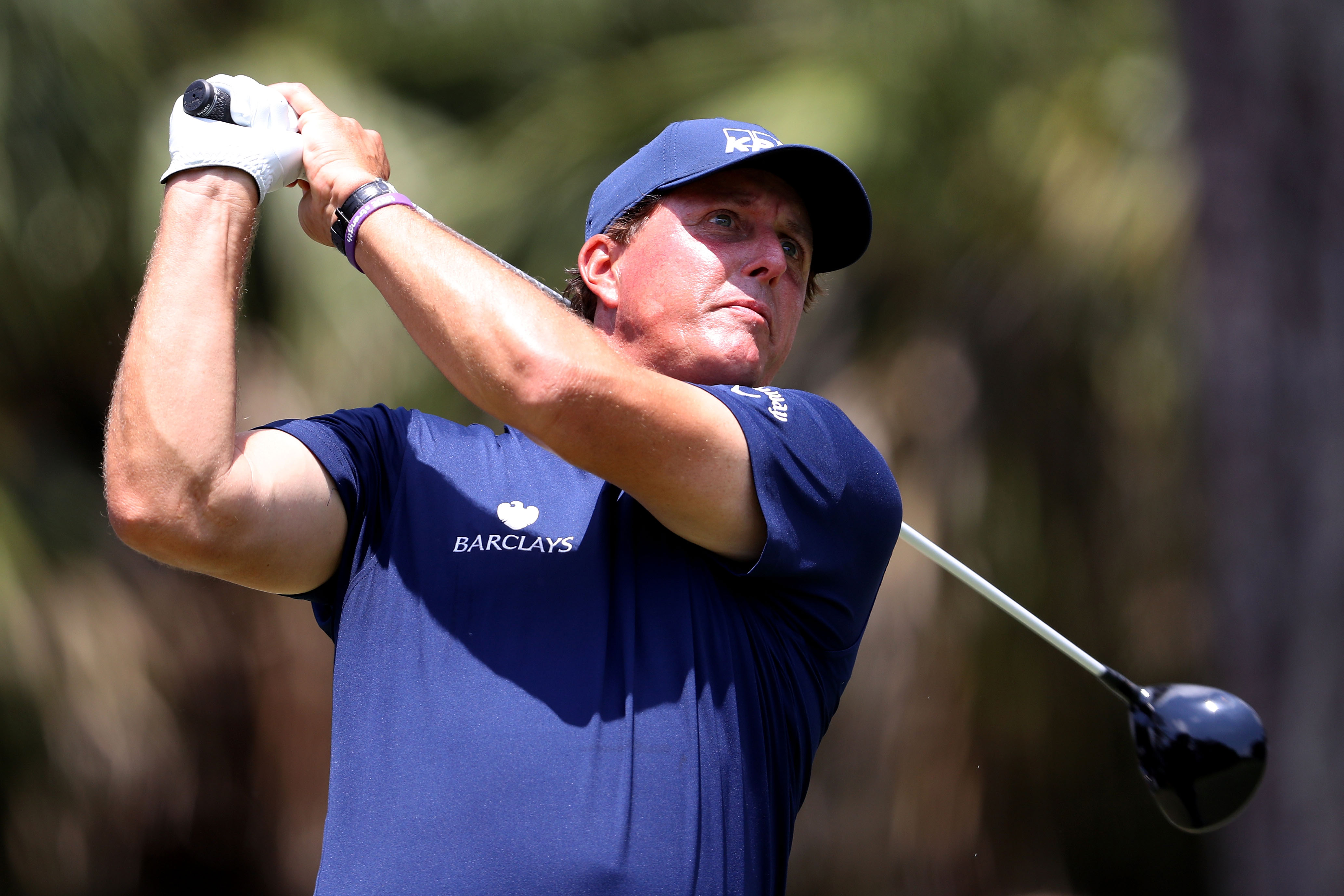The Securities and Exchange Commission named Phil Mickelson in a federal insider trading lawsuit, alleging in court documents filed on Thursday that the five-time major winner made nearly $1 million via information that was not publicly available.
The complaint filed by the SEC in U.S. District Court for the Southern District of New York named Mickelson as a so-called “relief defendant,” meaning the golfer has not been accused of any criminal wrongdoing. Since the case is in civil court, the SEC seeks “all ill-gotten gains in the form of illicit trading profits."
Billy Walters, a well-known sports gambler who allegedly passed the information to Mickelson in July 2012, and Thomas C. Davis, the former head of Dean Foods, along with two companies controlled by Walters. were also listed as defendants.
“Phil has not been charged with insider trading,” Gregory B. Craig and Pat Swan, attorneys for Mickelson, said in a statement provided to USA TODAY Sports. “Phil was an innocent bystander to alleged wrongdoing by others that he was unaware of. Phil is innocent of any wrongdoing. “
In a separate statement, Mickelson said he has entered into an agreement with the SEC to repay the money he made from the 2012 investment in Dean Foods in question.
"Simply put, Mickelson made money that wasn't his to make," said Andrew Ceresney, head of the SEC Enforcement Division. Mickelson is repaying $931,738.12 in trading profits and $105,291.69 in interest, the SEC said.
"The complaint does not assert that Phil Mickelson violated the securities laws in any way," a statement from Craig said. "On that point, Phil feels vindicated.
"At the same time, however, Phil has no desire to benefit from any transactions that the SEC sees as questionable."
Walters and Davis also face charges in a separate criminal case insider trading case brought by the SEC, according to charging documents in Manhattan federal court.
Davis allegedly gave Walters confidential information about Dean Foods, a major Dallas-based dairy processor and distributor, and Darden Restaurants (DRI), the parent of Olive Garden and other popular dining chains, from at least 2012-2014
Mickelson owed Walters money from gambling debts at the time the two chatted over the phone in July 2012, according to the lawsuit. Walters “urged Mickelson to trade in Dean Foods stock, which Mickelson did the next trading day in three brokerage accounts he controlled.”
Mickelson purchased, partially on margin, a total of 200,240 Dean Foods shares between July 30-31, totaling $2.4 million.
“This position dwarfed the other holdings in the brokerage accounts, which collectively were valued at less than $250,000,” Alexander M. Vasilescu, a lawyer for the SEC, wrote. “Mickelson had not been a frequent trader and these were his first ever Dean Foods purchases.”
Dean Foods shares skyrocketed on Aug. 7, 2012, by 40 percent when a spin-off company, WhiteWave, was announced.
Mickelson sold all his Dean Foods shares the next day and netted a $931,000 profit.
The SEC claims Mickelson repaid Walters in September 2012, largely, with the trading proceeds.
Mickelson, ranked No. 17 in the world, has not won a tournament since capturing the 2013 British Open. While he's played well in spots this year — a runner-up finish at the AT&T Pebble Beach Pro-Am, a fifth-place finish at the WGC-Cadillac Championship and a tie for fourth in the Wells Fargo Championship, he has missed the cut in three of his last four starts, including last week's Players Championship.
He has won 42 PGA Tour titles, ninth all time. He’s won $79.5 million in prize money, second all-time to Tiger Woods’ $110 million. His sponsors include Amgen, Barclays, Rolex, Callaway, KPMG, ExxonMobil among others.
The PGA Tour had no comment on Mickelson.
Contributing: David Carig and Kevin McCoy


